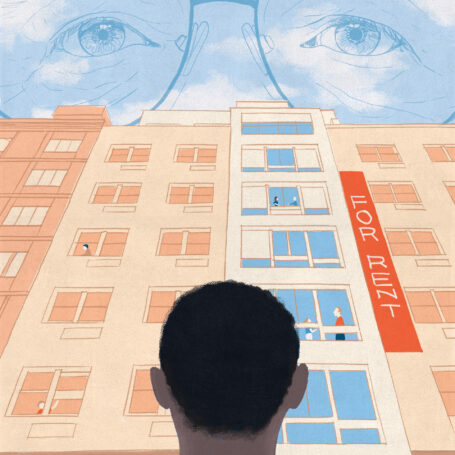January 4, 2023
The Diversity Certified project aims to ensure home is a safe space
For many tenants in Edmonton, keeping roofs over their heads can come with challenges simply because of the colour of their skin.
Thankfully, the wheels are in motion to address this. A new curriculum, launched by e4c, Edmonton Shift Lab and the Centre for Race and Culture, aims to reduce discrimination by landlords and non-market housing providers in an effort to achieve equity, diversity and inclusion (EDI).
The curriculum development was helped by a $10,000 grant from Edmonton Community Foundation (ECF).
“Because of ECF’s contribution to the Diversity Certified (DC) project, we were able to conduct meaningful community- based research with landlords and tenants to provide the evidence of lived experience, which helps to inform the DC curriculum,” says David Prodan, e4c’s strategic analyst.
The curriculum involves 20 hours of learning and workshops, but Prodan says those are just a starting point.
“Making this type of conversation or this type of education accessible requires more than just offering a workshop to landlords,” he says. “It really requires building a relationship with landlords so that, over time, you can have some of those more challenging conversations.”
He says many landlords simply see themselves as people trying to collect rents, and don’t see the need to address systemic racism. “The challenge definitely becomes that landlords don’t necessarily see themselves as doing anything wrong,” he says.
For Prodan, the curriculum cannot progress without engaging with landlords and reviewing the content to make it more digestible while addressing their concerns. Still, it is something that could be included in future post-secondary courses. “There’s lots of different ways that we can take the knowledge that we’ve developed and hopefully make the change that’s necessary to shift from housing as a commodity to housing as a human right,” he says.

Sameer Singh of the Edmonton Shift Lab has been battling anti-racism and discrimination in housing for many years.
“It was nice to see other actors, other stakeholders in society hearing that wakeup call to be more inclusive and to take a stand against racism,” says Singh.
Nadine Chalifoux has experienced discrimination in the housing market firsthand based on race and disability.
Making landlords face their practices head-on is something Chalifoux says can help improve the situation. “Between disability and race, landlords get away with a lot of judgement,” she says. “They get away with a lot of picking and choosing. All that should matter is that [tenants] have an income, they can pay their rent and they follow the rules of the place. Nothing else.”
Ensuring there’s a level of oversight to look at the funding and the training is something Chalifoux wants to see to ensure discrimination is reduced for tenants.
This article comes from the Winter 2022 edition of Legacy in Action. Read the full issue.